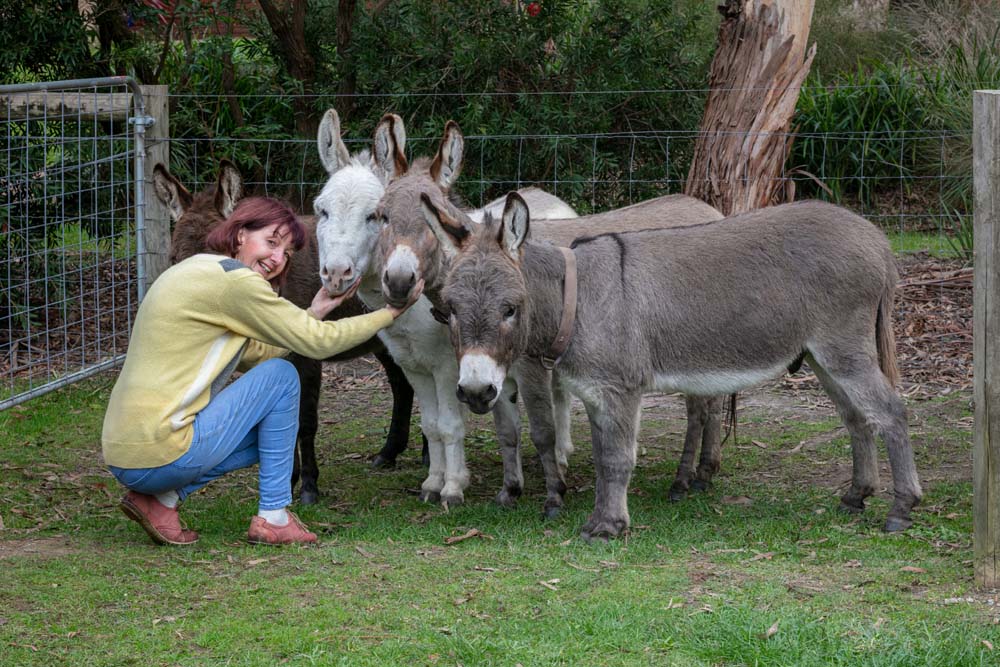THERE is no shortage of descriptions or writings about the perceived benefits of humans interacting or moving about within nature, or the great outdoors.
The term biophilia is used to describe the hypothesis that humans have an innate tendency to connect with nature, including other living creatures.
Diversional therapist Michelle Lowe has no doubts about these benefits and says she sees the positive effects on visitors to her “social and emotional wellbeing centre” in Balnarring.
Visitors can stroll around the 2.6 hectare property, which has trees and flowers for the picking. Its paddocks can be very peaceful and calming.
But the one major factor that makes this particular property stand out from the ordinary is the presence of four miniature donkeys.
The donkeys have been trained for therapy and “provide comfort and enjoyment to people who are affected by mental and physical illness,” Ms Lowe said.
Ms Lowe’s business, Talk to the Animals, is recognised as a service provider for NDIS (National Disability Insurance Scheme) participants who can sit in quiet spaces, wander around the wetlands, pick flowers and, of course, mingle with the donkeys.
She says exposing humans to nature and a natural environment “has the potential to de-stress, improve mental health, improve cognitive functioning and learning; reduce destructive repetitive behaviour and increase receptivity for behavioural change and restorative opportunities”.
Ms Lowe said competitive lifestyles and stress led to an increase in the number of people with physical and mental illnesses.
Donkeys had “dog like personalities and are naturally calm animals with enormous therapeutic benefits”, she said.
“Touching, grooming and cuddling donkeys allows people to relax and feel a sense of nurturing and connection.”
Ms Lowe said a donkey’s emotional intelligence could help to “develop the psycho-social and emotional skill set of humans”.
“The physical act of touching an animal calms both the human and the animal through oxytocin being released in the body through activation of touch receptors in the skin,” she said.
“This release of oxytocin provides a calm and connection reaction, including changes in behaviour as well as lowered blood pressure and pulse rate.
“Animals represent reality, they eat, play and show emotions as they maintain a safe psychological presence. Animals offer friendship through non-verbal clues, which can be an easier form of communication than typical human spoken communication.”
Ms Lowe said donkeys were protective of humans. “This disposition induces a deep interaction between human and donkey, causing relaxation due to the donkey breathing and sharing body warmth.
“Animals can provide a secure base and a source of comfort during times of anxiety. Donkeys naturally respect the human need for personal space [and] this special aspect of donkeys is useful in all cases of fear.”
Details: www.donkeylovetherapy.com.au
First published in the Southern Peninsula News – 27 April 2021




